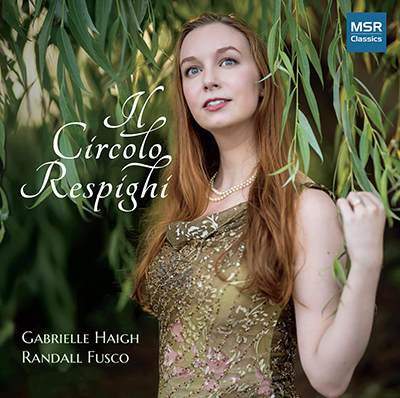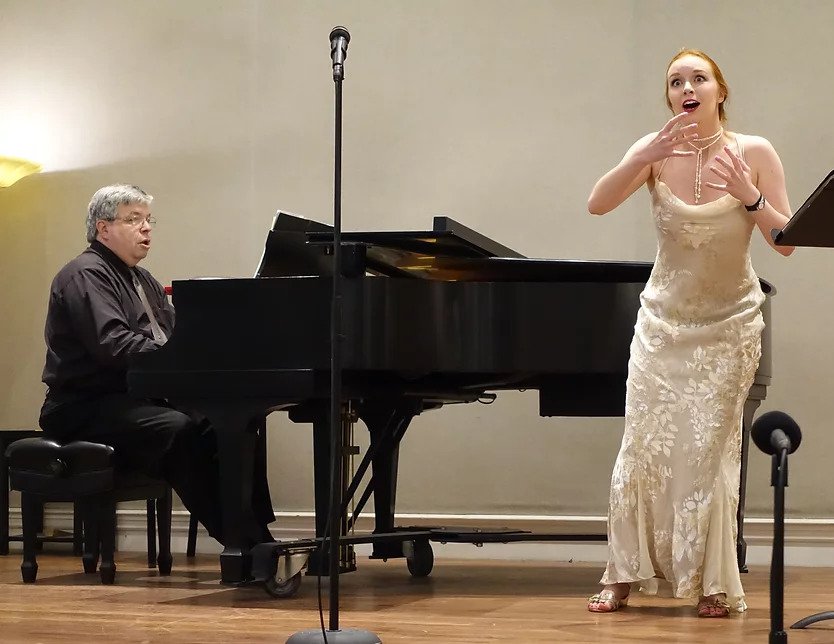by Daniel Hathaway

That idea was born when Haigh discovered that Respighi’s wife, Elsa (née Olivieri-Sangiacomo), who outlived him by some 60 years — she died at 102 — was both his pupil and a composer herself.
“This revelation led to the idea of performing a recital featuring art songs composed by Respighi’s most influential teachers, Nicolai Rimsky-Korsakov and Giuseppe Martucci, by his students Vittorio Rieti and Elsa Respighi, and of course several of his own,” Haigh wrote in her album notes.
Merely recording some of Respighi’s solo vocal music would be interesting enough in itself — he’s most widely known for his brilliant orchestral tone poems and the Ancient Airs and Dances — but extending the circle introduces us to the music of Giuseppi Martucci (“the Italian Brahms”), and of his students. Elsa Respighi and Vittorio Rieti are hardly household names, although Rieti looks intriguing, having been born in Egypt, having become a U.S. Citizen in 1944, and having taught at the Peabody Conservatory.
Gabriella Haigh, a member of the Northeast Ohio Haigh musical dynasty who has performed with Apollo’s Fire, is well-qualified to bring both excellent vocal qualities and a high level of scholarship to the Circolo Respighi project. She holds degrees from the San Francisco Conservatory of Music and the University of Cambridge, where she served as a soloist and choral scholar in the Choir of Clare College. Haigh’s extra-musical interests include the study of languages, classical history and philosophy, and lyric poetry.

Elsa’s Quattro Liriche dai Rubaiyat reflect the era’s fascination with Medieval Arabic poetry — while getting its meaning as wrong as the Victorians did — and make some attempts at musical exoticism in the piano part. Her Tre Canzoni Spagnole, another side excursion into a different culture, brings three Spanish poets into the mix. Vittorio Rieti’s La Crise is just fascinatingly weird.
Haigh has provided extensive notes on the repertory, printed in the informative program booklet. These include her thoughts on arranging these pieces into a meaningful arc, “placing songs by Respighi’s teachers at the beginning and end, with his students’ songs clustered in the middle, and his own forming bridges between the others.”
Comparing the current period of disease, political upheaval, and social change to the tumultuous times in which these composers lived, Haigh writes: “This may be the reason so many of the songs here are focused on other times and places, real or imagined — when times are hard, escapism is powerful.”
Il Circolo Respighi was recorded in November 2020 at St. Stephen’s Episcopal Church, in Belvedere, California. The disc was produced, engineered, edited and mastered by David v.R. Bowles, of Swineshead Productions, LLC.
In addition to the usual purchase options, the album is available for streaming on Spotify and Apple Music.
Published on ClevelandClassical.com September 29, 2022.
Click here for a printable copy of this article


